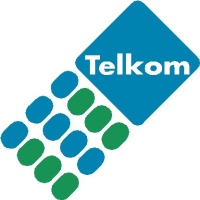South Africa gets first taste of fixed 40Mbps - but only when the LTE threat's too big to ignore

South Africa's incumbent fixed-line operator Telkom has started piloting high-speed broadband services offering download speeds of up to 40 Mbps — a move that appears calculated to stave off looming competition from commercial LTE services run by the country's mobile operators.

Telkom, which is 39.8-percent owned by the South African government, will be piloting the high-speed services at five sites in Johannesburg, Pretoria, Durban and Cape Town. The move is overdue: Telkom currently offers ADSL services ranging in speed from 384kbps to 10Mbps — speeds that many commentators maintain are not good enough for a country that wants to compete on the global stage.
"A core part of our strategy is to lead in the data and broadband space as well as the fixed-mobile convergence market," Telkom CEO Nombulelo Moholi said in a statement. "The timeous launch of this pilot indicates the focused execution of our strategy."
Arthur Goldstuck, managing director at research firm World Wide Worx, says that the pilot project is anything but timely. "There is a concern that it has taken Telkom so long to get the technology up and running," Goldstuck says. "It seems to fit into a long-term strategy of delaying the rollout of next-generation technologies as long as possible."
Telkom seems to be prompted into action only when competing technologies threaten to eclipse the performance of its fixed-line offerings. With pilot projects for LTE services at mobile networks Vodacom and MTN at their advanced stages, "suddenly we have Telkom with the next-generation of their fixed-line broadband", Goldstuck says.
Broadband subscribers
Telkom's once-dominant position in the South African broadband market has been eroded over the past few years as mobile broadband data costs have tumbled.
According to World Wide Worx's numbers for 2011, Telkom had just 820,000 ADSL subscribers compared to the around 5.5 million 3G users in South Africa. Indications are that growth in fixed-line subscribers will flatten over the next few years even as mobile broadband growth continues to ramp up, says Goldstuck.
"There is a concern that it has taken Telkom so long to get the technology up and running" — Arthur Goldstruck, World Wide Worx
Telkom should be leading the market because fixed line still offers a superior service to mobile broadband, he adds — and the pilot product should provide far better quality of service and performance than one could expect from an LTE service with a theoretical top download speed of 40Mbps. However, chances are that high costs for the access portion of the service will make it a niche product for those who it can afford it.
Telkom's biggest advantage will be that it can provide cheaper, more plentiful data than the mobile operators can, without degrading the performance of their networks, says Goldstuck. It may not be viable to offer users completely uncapped packages, but Telkom could certainly offer packages of up to 200GB data a month.
Network transformation
The pilot follows earlier progress updates on Telekom's network transformation. The operator says it has made a great deal of progress in revamping its aggregation, transmission and access networks, and has also boosted its investments in submarine cable capacity.
"Given the mix of customer broadband needs, a dispersed customer base and vast geography in South Africa, Telkom has chosen fibre to the x [ie. fibre to the premises or to the cabinet] as one of the key solutions in our access network revamp," says Telkom's managing director for wholesale and networks, Bashier Sallie. "We can now start to truly capitalise on the investments made in our underlying transmission and core network over the past few years."
To date, 53 MSANs (multi-service access nodes) have been deployed to facilitate the pilot. Telkom could roll out up to 3,700 MSAN units over the next three to five years to replace older DSLAM cabinets.
A Telkom spokesman tells African Enterprise that the operator will only be able to disclose its plans for the commercial launch of the high-speed services once it has completed the pilot project in January 2013. In other words, South African broadband users eager to upgrade to a faster connection probably shouldn't hold their collective breath.